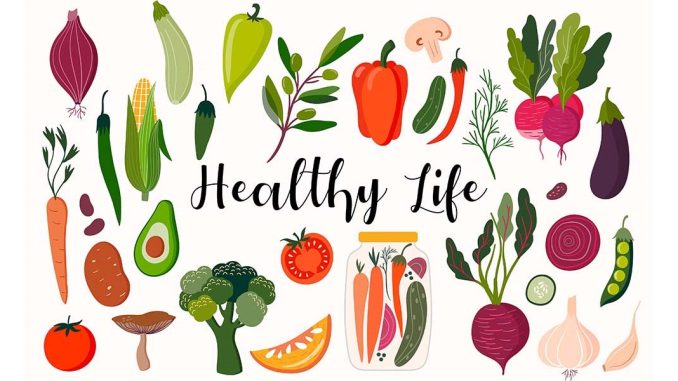

Obesity is on the rise, and according to NHS statistics in 2019 the majority of adults were overweight or obese; 67% of men and 60% of women. Even more worrying is that 20% of year 6 children were classified as obese.
These figures are likely to have increased further following the coronavirus pandemic which has seen the country go through a variety of restrictions and lockdowns. This has meant that alongside the various other challenges, many people have been working from home since Lockdown first started in March 2020. According to research from the COVID Symptom Study app, almost a third (29%) of those surveyed have gained weight since March 2020 due to increased snacking and decreased physical activity.
Small changes in habits can go a long way though, so we have put together a few ideas to help you shift the weight for good!
In This Content
Improving your diet
It’s easy to be tempted to go for the quick fix option, however, losing weight in the wrong kind of way can have the opposite effect for the long term and can potentially make you put weight back on.
Record your daily intake of food via a diary or one of the many Apps available for free via Android or iOS. This will allow you to evaluate how much food you are consuming, the types of food you are eating and can help you avoid those bad habits. Making small healthy changes to your everyday life can be the key to losing weight permanently, here are a few top tips:
- Eat low-fat foods
- Trim visible fat off meat
- Eat five portions of fruit and vegetables per day
- Drink less alcohol
- Avoid high-calorie foods like chocolate and cakes
- Try grilling, steaming and poaching your foods
- Drink plenty of water (sometimes hunger pangs can be a sign of thirst!)
Fight emotional snacking
Working from home can make it difficult to resist snaking, as can fighting emotional hunger by turning to food for a source of comfort or even entertainment. Identify your triggers and create an action plan to avoid temptation.
You are likely to be feeling a variety of emotions during this uncertain time. Emotional eating is a problem for everyone, especially if you are feeling stressed, tired or low. It’s easy to turn to your favourite cake, pizza, chocolate or crisps to fill that gap. Finding alternative ways to deal with stress and emotion can help you avoid emotional eating. Physical activity has a positive effect on our health and can help enhance our mood too! When you’re feeling down next, instead of heading for the biscuits tin go out for a 10-minute walk.
If you do need to snack choose wisely. Preparation is key, ensuring you have easy access to healthier options like fruit and ready to eat veggies like peppers and celery in the fridge. It can also help to adopt a regular healthy mealtime routine. A small study suggests eating your last meal of the day earlier in the evening is beneficial for weight loss management, as you would be limiting your overall calorie intake and allowing a longer duration of overnight fast.
Get active and be healthy
Combine your healthy diet with physical exercise to see long-term results and reduce your risk of developing serious illnesses. To maintain a healthy weight ideally we should be consuming the same amount of calories as we are burning, to keep an equal energy balance. If you’re looking to lose weight then you want to be burning more energy than you are taking in.
The NHS recommends that adults aged 19 to 64 should at least complete:
- 150 minutes of moderate aerobic activity, such as brisk walking or cycling, or 75 minutes of vigorous aerobic activity such as running or a game of tennis each week
- Strength exercises on 2 or more days a week
Here are some top tips to becoming more active:
- Set yourself a little target each day, for example, a 20-minute walk, working up to a target of walking 10,000 steps a day
- Get yourself a step tracker to motivate your movement (see our January competition to win one for free)
- Take the stairs instead of the lift
- Walk to the shop instead of driving
- Take a look at the Couch to 5K programme
- Adopt one of the many at-home workout videos on YouTube. Yoga can be great for core strength as well as mental wellbeing.
If you have any health concerns before exercising you should always consult your doctor first.
[“source=generalandmedical”]
